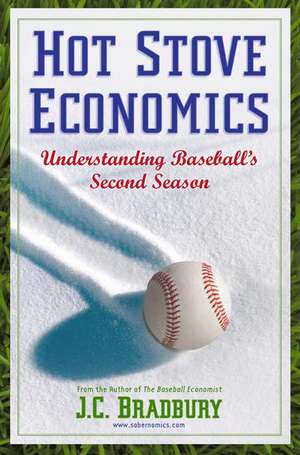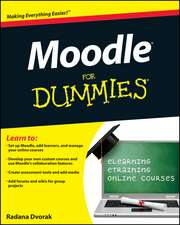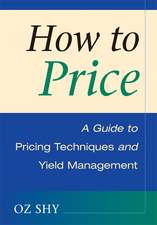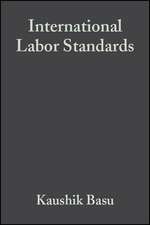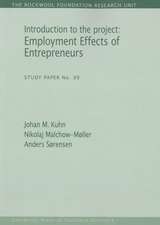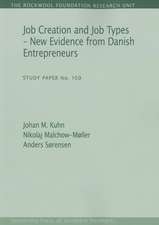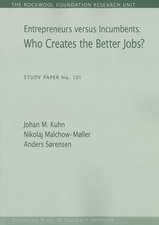Hot Stove Economics: Understanding Baseball's Second Season
Autor J.C. Bradburyen Limba Engleză Paperback – 5 oct 2010
Preț: 151.14 lei
Nou
Puncte Express: 227
Preț estimativ în valută:
28.92€ • 30.03$ • 24.12£
28.92€ • 30.03$ • 24.12£
Carte disponibilă
Livrare economică 01-15 martie
Preluare comenzi: 021 569.72.76
Specificații
ISBN-13: 9781441962683
ISBN-10: 1441962689
Pagini: 282
Ilustrații: XX, 262 p. 17 illus.
Dimensiuni: 155 x 235 x 20 mm
Greutate: 0.4 kg
Ediția:2011
Editura: Springer
Colecția Copernicus
Locul publicării:New York, NY, United States
ISBN-10: 1441962689
Pagini: 282
Ilustrații: XX, 262 p. 17 illus.
Dimensiuni: 155 x 235 x 20 mm
Greutate: 0.4 kg
Ediția:2011
Editura: Springer
Colecția Copernicus
Locul publicării:New York, NY, United States
Public țintă
Popular/generalCuprins
Why Johnny Estrada Is Worth Kevin Millwood: Valuing Players asAssets.- Down with the Triple Crown: Evaluating On-Field Performance.- A Career Guide from Little League to Retirement: Age and Success inBaseball.- Putting a Dollar Sign on the Muscle: Valuing Players.- Deals, Duds, and Caveats: What Do the Estimates Reveal?- Building a Champion on a Dime: Winning and Winning Efficiently.- Is C.C. Sabathia Worth $161 Million? Valuing Long Run Contracts.- You Don't Need a Name to Be Traded: Valuing Minor-League Prospects
Recenzii
From the reviews:
"J.C. Bradbury is the preeminent analyst of baseball economics in the world." Tyler Cowen, George Mason University and marginalrevolution.com
“During the summer and fall baseball fans live and die with the success and failures of their favorite teams. But the source of all this emotion – as J.C. Bradbury demonstrates in Hot Stove Economics – are the decisions made in the winter. Such decisions depend upon the information available to teams and how this is evaluated. Bradbury provides a guide to decision-making that will not only help the fan understand what their favorite team is doing, but also probably help more than a few teams do more to please their fans.” David Berri, Southern Utah University and author of The Wages of Wins
There's no more complaining that you can't understand the economics of the game after this book. Bradbury's clear and entertaining style makes the hardcore economics that drive the game accessible to someone like me, who can't balance a checkbook!" Will Carroll, Senior Writer, Baseball Prospectus
"In Hot Stove Economics J.C. Bradbury delves into important questions of how professional baseball franchises value the talent of players. The questions are of interest to baseball fans who can and do argue the merits of specific trades, established player for established player or established player for prospects. The questions and their answers may also be interesting to people who bemoan the large salaries paid to grown men playing a game, people who want to know on what basis a ball player can be worth millions of dollars a year. J.C. addresses all these questions and all these readers in an engaging and easy style that manages to inform barroom sports debates and teach some basic economics all at the same time." Dennis Coates, University of Maryland, Baltimore County and past President of the North American Association of Sports Economists
“In Hot Stove Economics, a volume with a theme of assessing player performance and worth (versus compensation and/or contract worth), and how well ball clubs husband and allocate their resources in their quest to win games and generate revenues, most of those same plaudits and criticisms apply. … He also tends to cherry-pick examples. … Summing Up: Recommended. General readers, all levels of students, faculty and researchers.” (A. R. Sanderson, Choice, Vol. 48 (7), March, 2011)
“Just in time for the baseball season, check out J.C. Bradbury’s Hot Stove Economics. It’s a very nice application of economics to baseball and is written with great clarity and insight. The book opens with why it made sense for the Braves to trade Kevin Millwood, an apparent star, in exchange for Johnny Estrada, an apparent failed prospect. I found it quite illuminating particularly because it showed how the standard explanation for these kind of trades may often (always) be wrong.” (Russ Roberts, Cafe Hayek, March, 2011)
"J.C. Bradbury is the preeminent analyst of baseball economics in the world." Tyler Cowen, George Mason University and marginalrevolution.com
“During the summer and fall baseball fans live and die with the success and failures of their favorite teams. But the source of all this emotion – as J.C. Bradbury demonstrates in Hot Stove Economics – are the decisions made in the winter. Such decisions depend upon the information available to teams and how this is evaluated. Bradbury provides a guide to decision-making that will not only help the fan understand what their favorite team is doing, but also probably help more than a few teams do more to please their fans.” David Berri, Southern Utah University and author of The Wages of Wins
There's no more complaining that you can't understand the economics of the game after this book. Bradbury's clear and entertaining style makes the hardcore economics that drive the game accessible to someone like me, who can't balance a checkbook!" Will Carroll, Senior Writer, Baseball Prospectus
"In Hot Stove Economics J.C. Bradbury delves into important questions of how professional baseball franchises value the talent of players. The questions are of interest to baseball fans who can and do argue the merits of specific trades, established player for established player or established player for prospects. The questions and their answers may also be interesting to people who bemoan the large salaries paid to grown men playing a game, people who want to know on what basis a ball player can be worth millions of dollars a year. J.C. addresses all these questions and all these readers in an engaging and easy style that manages to inform barroom sports debates and teach some basic economics all at the same time." Dennis Coates, University of Maryland, Baltimore County and past President of the North American Association of Sports Economists
“In Hot Stove Economics, a volume with a theme of assessing player performance and worth (versus compensation and/or contract worth), and how well ball clubs husband and allocate their resources in their quest to win games and generate revenues, most of those same plaudits and criticisms apply. … He also tends to cherry-pick examples. … Summing Up: Recommended. General readers, all levels of students, faculty and researchers.” (A. R. Sanderson, Choice, Vol. 48 (7), March, 2011)
“Just in time for the baseball season, check out J.C. Bradbury’s Hot Stove Economics. It’s a very nice application of economics to baseball and is written with great clarity and insight. The book opens with why it made sense for the Braves to trade Kevin Millwood, an apparent star, in exchange for Johnny Estrada, an apparent failed prospect. I found it quite illuminating particularly because it showed how the standard explanation for these kind of trades may often (always) be wrong.” (Russ Roberts, Cafe Hayek, March, 2011)
Notă biografică
J.C. Bradbury received his Ph.D. in economics from George Mason University in 2000 and is currently an associate professor at Kennesaw State University in metropolitan Atlanta. Known for his expertise in the economics of sports, he is the author of the The Baseball Economist and runs the weblog Sabernomics.com. In addition to his many academic publications, he has published articles in popular press outlets that include ESPN Magazine, The New York Times, and The Atlanta Journal-Constitution. He is a life-long Braves fan and lives in Marietta, Georgia with his wife and two daughters.
Textul de pe ultima copertă
The final out of the World Series marks the beginning of baseball's second season, when teams court free agents and orchestrate trades with the hope of building a championship contender. The real and anticipated transactions generate excitement among fans who discuss the merit of moves in the arena informally known as the “hot stove league.” In Hot Stove Economics, economist J.C. Bradbury answers the hot stove league's most important question: what are baseball players worth? With in-depth analysis, Bradbury identifies the game’s best and worst contracts—revealing the bargains, duds, and players who are worth every penny they receive. From minor-league prospects to major-league MVPs, Bradbury examines how factors such as revenue growth, labor rules, and aging— even down to the month in which players are born—shape players' worth and evaluates how well franchises manage their rosters. He broadly applies the principles of economics to baseball in a way that is both interesting and understandable to sports fanatics, team managers, armchair economists and students alike.
"J.C. Bradbury is the preeminent analyst of baseball economics in the world."Tyler Cowen, George Mason University and marginalrevolution.com
"There's no more complaining that you can't understand the economics of the game after this book. Bradbury's clear and entertaining style makes the hardcore economics that drive the game accessible to someone like me, who can't balance a checkbook!" Will Carroll, Senior Writer, Baseball Prospectus
“During the summer and fall baseball fans live and die with the success and failures of their favorite teams. But the source of all this emotion – as J.C. Bradbury demonstrates in Hot Stove Economics – are the decisions made in the winter. Such decisions depend upon the information available to teams and how this is evaluated. Bradbury provides a guide to decision-making that will not only help the fan understand what their favorite team is doing, but also probably help more than a few teams do more to please their fans.” David Berri, Southern Utah University and author of The Wages of Wins
"J.C. Bradbury is the preeminent analyst of baseball economics in the world."Tyler Cowen, George Mason University and marginalrevolution.com
"There's no more complaining that you can't understand the economics of the game after this book. Bradbury's clear and entertaining style makes the hardcore economics that drive the game accessible to someone like me, who can't balance a checkbook!" Will Carroll, Senior Writer, Baseball Prospectus
“During the summer and fall baseball fans live and die with the success and failures of their favorite teams. But the source of all this emotion – as J.C. Bradbury demonstrates in Hot Stove Economics – are the decisions made in the winter. Such decisions depend upon the information available to teams and how this is evaluated. Bradbury provides a guide to decision-making that will not only help the fan understand what their favorite team is doing, but also probably help more than a few teams do more to please their fans.” David Berri, Southern Utah University and author of The Wages of Wins
Caracteristici
Addresses the important question: What are players worth in real dollar terms?
Explains the business-driven logic behind player moves and the factors affecting them
Employs empirical methods and economic theory in terms understandable to non-economists
Includes supplementary material: sn.pub/extras
Explains the business-driven logic behind player moves and the factors affecting them
Employs empirical methods and economic theory in terms understandable to non-economists
Includes supplementary material: sn.pub/extras
